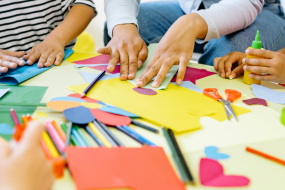
A new and possibly worrying report has recently been published by the United Nations, stating that over 200 million children in India alone have been impacted due to the lack of accessible education in the times of COVID 19 and the lock down that had to be administered to curb its spread. So are we producing child labourers in place of students?
To begin with, we need to assess the fact that there is still much to be desired in terms of the state of our EdTech which is primarily supposed to make education much more accessible for all classes of students – marginalized, or not. There are many gaps in the EdTech sector as well as the availability of the devices that can keep children in school or at least help them remain in touch with the process of learning so that schooling is not disrupted with the help of e-learning technology. These gaps have put the future of such children in jeopardy. This has led many children to turn into child labourers since they have little other to look forward to, in terms of their present and the future. Let us understand this in a better manner.
As per the UN report, 247 million children have been impacted by the lock down which the COVID 19 situation has prompted. Out of these children, there are about 28 million who had been relying on Aanganwadi schools for their educational needs. These setups are well known for providing children with the care they need along with education and meals. When these places have shut down, the children have no other means but to become child labourers to secure their next meal. This is quite a sorry state of affairs indeed.
Further, there are a number of organizations like Teach for India that are dedicated towards the schooling of such children. These organziations have recently reopened. Yet, there are very few children in the classrooms owing to the fact that the migrant labour situation has led them all to flee to their villages and homes. Plus, many of the teachers came in from nearby urban areas and they have been placed under lock down as well.
Add to this fact, the rising numbers of the COVID 19 infection in rural areas. These areas have suffered the brunt of complete lack of social distancing and the cases are coming to the fore now since the migrant labour movement that happened weeks ago has peaked in thousands of numbers today.
While the National Council for Educational Training and Research or NCERT has set forth guidelines along with web portals in tandem with organisations like Diksha, we must ask ourselves if these are on the list of priorities for families and children where the next meal is also an uncertain thing. Would they really be willing to forgo the option of earning enough for a single day’s meal in order to get educated only to join the ranks to rising unemployment and recession in this country that is also going through deep economic crises? Time to ponder before we move ahead!





